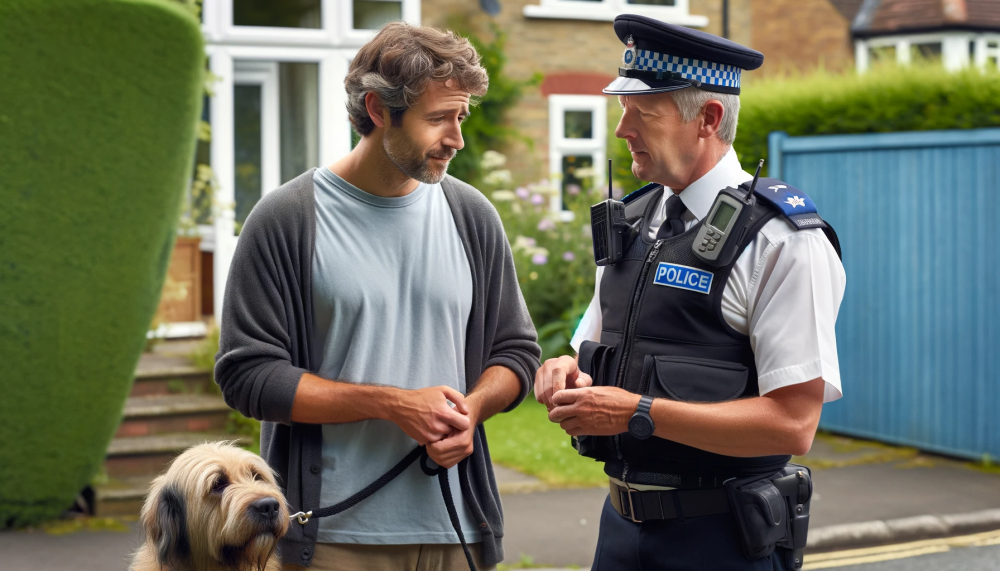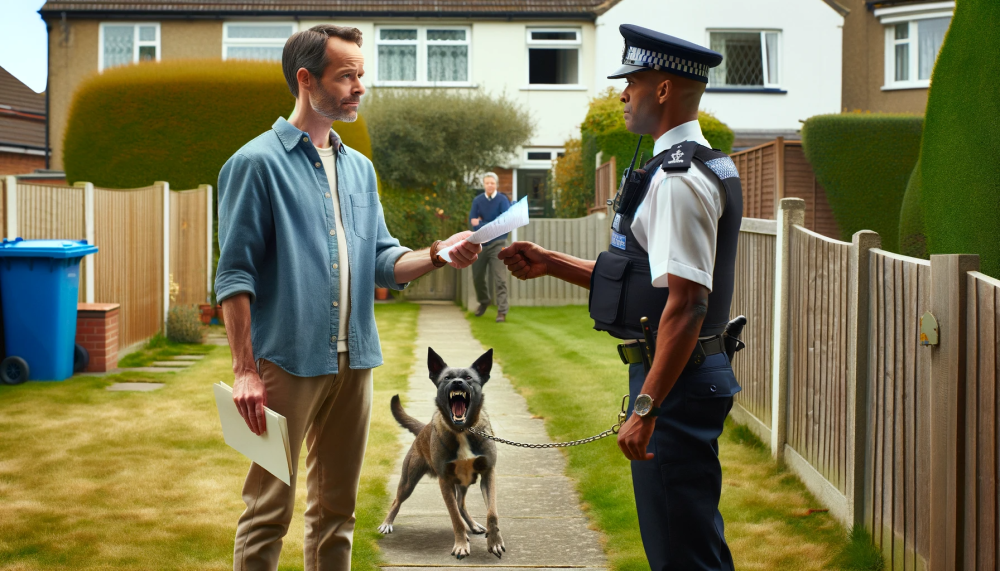Contacted by The Police About a Dangerous Dog: What to Do – A Comprehensive Guide
Contacted by The Police About a Dangerous Dog: What to Do – A Comprehensive Guide
Being contacted by the police regarding a dangerous dog can be a distressing and challenging situation. It is crucial to handle this situation calmly and responsibly while understanding your rights and obligations.
In this article, we will provide a comprehensive guide on what to do if you are contacted by the police about a dangerous dog. From ensuring safety to complying with legal requirements, this article will equip you with the knowledge and steps to navigate this situation effectively.
Remain Calm and Cooperative

When contacted by the police about a dangerous dog, it is essential to remain calm and cooperative. Cooperate fully with law enforcement, providing them with accurate and honest information. Remaining calm will help de-escalate the situation and demonstrate your willingness to cooperate, which can positively influence the outcome.
Secure the Safety of People and Other Animals
The safety of people and other animals should be your utmost priority. If your dog poses an immediate threat or is involved in an ongoing incident, take immediate action to secure the area and ensure the safety of those around you. Follow any instructions provided by the police or animal control authorities to prevent further harm.
Comply with Legal Requirements

Different legal requirements apply when it comes to dangerous dogs. Familiarise yourself with the legislation specific to your jurisdiction, as laws may vary. In England, the Dangerous Dogs Act 1991 outlines legal obligations, including the control, registration, and handling of certain types of dangerous dogs. Ensure you comply with these requirements to avoid potential legal consequences.
Gather Relevant Documentation
To effectively handle the situation, gather any relevant documentation related to your dog. This may include vaccination records, registration papers, proof of training or behaviour assessments, and any documentation that demonstrates responsible dog ownership. These documents can support your case and help authorities assess the situation accurately.
Seek Legal Advice

Consider seeking legal advice from a solicitor with expertise in animal law or criminal defence. They can provide guidance on your rights, legal obligations, and potential defences. A legal professional can help you navigate the legal process, represent your interests, and ensure your rights are protected.
Cooperate with Authorities and Follow Instructions
Cooperating with authorities is essential in resolving the situation. Respond promptly to any requests or inquiries made by the police or animal control officers. Follow their instructions regarding the handling, care, or removal of the dog to demonstrate your commitment to resolving the issue.
Provide Evidence of Responsible Dog Ownership

Demonstrating responsible dog ownership can positively impact how authorities perceive your case. Provide evidence of measures taken to ensure the safety and well-being of your dog, such as participation in training programs, obedience classes, or behaviour assessments. Highlight any steps you have taken to address any aggression or problematic behaviour.
Assess the Need for Professional Assistance
Depending on the circumstances, professional assistance may be necessary. If your dog has displayed dangerous behaviour, consider engaging a professional dog behaviourist or trainer experienced in working with aggressive dogs. Their expertise can help address and manage the underlying causes of aggression, increasing the chances of a positive outcome.
Keep Detailed Records
Maintain detailed records of all interactions, communications, and actions related to the incident. This includes recording dates, times, and details of conversations with authorities, any steps taken to address the situation, and any expenses incurred. These records can be valuable in case of future legal proceedings or to support your position.
Thank you for reading this post, don't forget to subscribe!
Notice: Informational Content Disclaimer
The content provided on this website, including articles, blog posts, and other informational materials, is intended for general informational purposes only. It is not intended as, and should not be considered, legal advice.
Visitors to this website should be aware that the information presented here is not a substitute for seeking legal advice from a qualified solicitor or legal professional. Each individual's legal situation is unique, and the information provided may not be applicable to specific circumstances.
If you require legal advice or have specific legal questions, we encourage you to contact us directly. Our experienced team of solicitors is here to assist you with your legal needs and provide tailored advice to address your concerns.
Please be advised that any communication through this website, including the use of contact forms or email, does not create a solicitor-client relationship. Confidential or time-sensitive information should not be sent through this website. To establish a solicitor-client relationship and discuss your legal matters in detail, please contact us for a consultation.
We strive to provide accurate and up-to-date information, but we make no representations or warranties regarding the accuracy, completeness, or suitability of the information contained on this website. We shall not be liable for any reliance placed on the information provided herein.
Thank you for visiting our website. We look forward to the opportunity to assist you with your legal needs.




